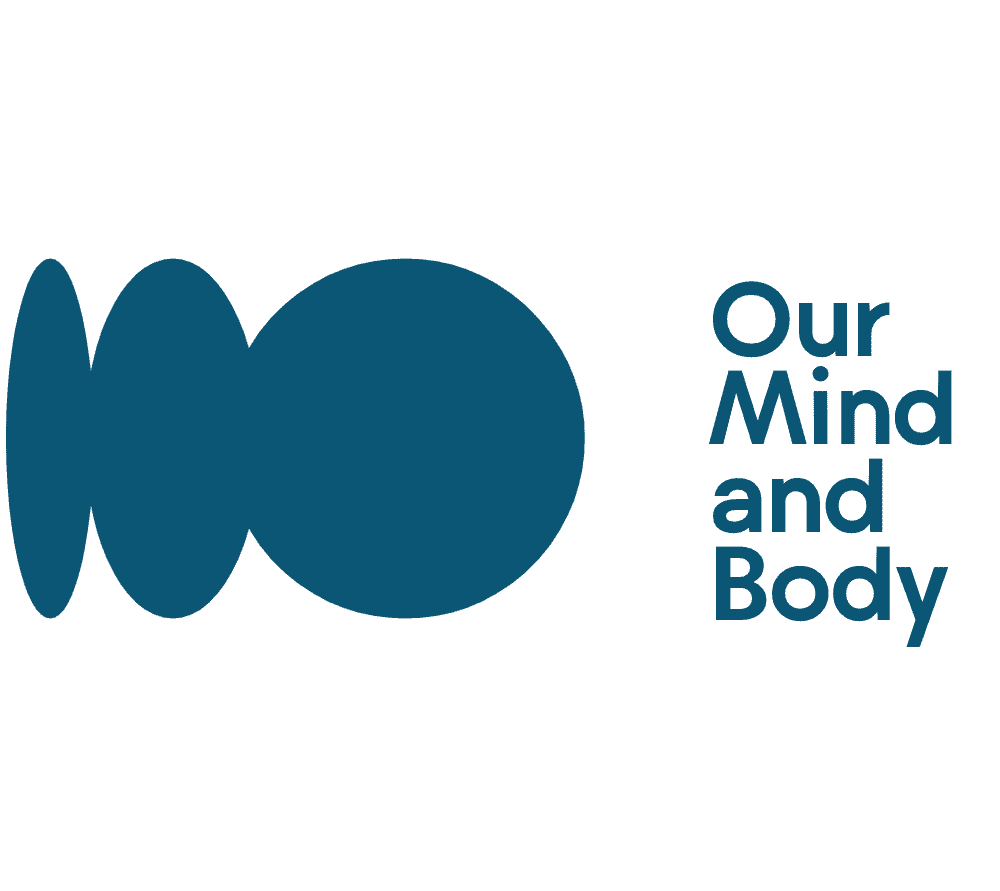Meditation
Optimal Sleep Environment: Dark, Noise-Free, And Comfortable

Are you exhausted from spending your nights flipping back and forth, in search of that elusive perfect slumber?
Look no further! I have the ultimate solution for you – creating the optimal sleep environment.
Forget about counting sheep or relying on sleep aids. By following a few simple steps, you can transform your bedroom into a haven of darkness, serenity, and comfort.
From temperature control to noise elimination, this article will provide you with evidence-based strategies to ensure a restful and rejuvenating night’s sleep.
So, get ready to dive into the world of the perfect sleep environment and wake up feeling refreshed like never before.
Key Takeaways
- Maintaining a dark sleeping environment is essential for proper rest, as excess light disrupts sleep. Using floor-to-ceiling drapes, full window shades, or blackout blinds can help create a dark space.
- Eliminating sleep disruptors such as electronics and noise is crucial. Removing electronic devices from the bedroom and using earplugs or white noise machines can help create a quiet environment for better sleep.
- Bedroom hygiene plays a role in promoting restful sleep. Decluttering the space, putting away clothes, and cleaning off the nightstand can create a clear and organized environment that induces sleep. Additionally, making the bed daily and using fresh sheets improve overall sleep hygiene.
- Enhancing comfort is important for optimal sleep. Investing in a comfortable mattress and choosing a pillow that supports the neck are key. It is also beneficial to test different options before purchasing to ensure proper alignment of the spine.
Creating the Perfect Bedroom for Sleeping
I’m going to create the perfect bedroom for sleeping by following these tips for temperature control, keeping it dark, eliminating sleep disruptors, maintaining bedroom hygiene, and enhancing comfort.
To start, temperature plays a crucial role in falling asleep easily. I will aim for a room temperature of 66 °F to 70 °F, as this range is considered ideal for sleep. To keep things on the cooler side, I will invest in bedding made from natural materials like cotton or bamboo, which help regulate body temperature.
Next, I will ensure a dark environment by using floor-to-ceiling drapes or full window shades to block out excess light. I will also eliminate electronics from the bedroom to limit exposure to blue light, which disrupts proper sleep.
Noise control is important too, so I will consider using earplugs or white noise machines, and I may even soundproof the room if necessary.
Maintaining bedroom hygiene involves decluttering and keeping the space organized, as a clear and tidy environment promotes restful sleep.
Finally, I will focus on comfort by investing in a comfortable mattress and pillow that support proper spine alignment.
Overall, by implementing these tips, I can create an optimal sleep environment for better quality rest.
Temperature Control
Maintaining the ideal room temperature is essential for creating a cozy sleeping oasis. Here are four key factors to consider when it comes to temperature control in your bedroom:
-
Drop core temperature: To fall asleep easily, it’s important to lower your core body temperature. Keeping your room temperature between 66 °F to 70 °F is considered ideal for promoting sleep.
-
Keep things on the cooler side: Opt for bedding made from natural materials like cotton or bamboo, as they help regulate temperature and keep you cool during the night.
-
Use floor-to-ceiling drapes: Excess light disrupts proper rest, so create a dark space by using full window shades or blackout blinds. This is especially important in urban areas with high light pollution.
-
Eliminate electronics: Electronic devices emit blue light, which corresponds to daylight and can interfere with your sleep cycle. Remove these devices from your bedroom to help your brain enter the proper sleep cycle.
By taking these temperature control measures, you can create the perfect sleeping environment that promotes deep and restful sleep.
Keep It Dark
Creating a dark sleeping space is crucial for achieving a peaceful and uninterrupted night’s rest. Excess light can disrupt our sleep patterns and make it difficult to fall asleep and stay asleep. To create a dark environment, consider using floor-to-ceiling drapes or full window shades to block out any external light sources. Additionally, blackout blinds can be used to ensure complete darkness in the room.
To help you visualize the importance of darkness in your bedroom, here is a table outlining the benefits of a dark sleeping environment:
| Benefits of a Dark Sleeping Environment |
|---|
| Improved sleep quality |
| Enhanced melatonin production |
| Regulation of circadian rhythm |
| Reduced risk of sleep disorders |
By creating a dark sleeping space, you can optimize your sleep environment and promote better sleep quality. Make sure to eliminate any sources of light, such as electronics or streetlights, and invest in window coverings that effectively block out light.
Eliminating Sleep Disruptors
To eliminate sleep disruptors, there are several strategies you can use to minimize the use of electronics in your bedroom.
First, it’s important to limit screen time before bed. The blue light emitted by electronic devices can suppress the production of melatonin, a hormone that regulates sleep. To allow your body to naturally wind down, avoid using screens at least one hour before bedtime.
Second, consider establishing a technology-free zone in your bedroom. Create a designated area where electronics are not allowed. This will help create a mental association between the bedroom and restful sleep, reducing the temptation to use devices.
Third, remove electronic devices from the bedroom altogether. Keeping smartphones, tablets, and laptops out of the bedroom eliminates the potential for distraction and disruption. Charge your devices in another room to resist the urge to check them during the night.
Lastly, consider using alternative alarm clocks. Instead of relying on your smartphone as an alarm clock, use a traditional alarm clock or a smart device that doesn’t emit blue light. This will prevent the temptation to use your phone and expose yourself to disruptive stimuli.
Noise Control
I can minimize noise disruptions in my bedroom by using earplugs or a white noise machine.
Noise has a significant impact on our ability to sleep soundly, and it is important to create a quiet environment for better sleep.
Earplugs are a simple and effective solution to block out external noises, such as traffic or loud neighbors. They are portable, affordable, and can be easily inserted into the ears to reduce noise levels.
Alternatively, a white noise machine can be used to generate a consistent and soothing sound that masks background noise, helping to drown out disturbances and promote relaxation.
By incorporating these noise control methods into my bedroom, I can create a peaceful and uninterrupted sleep environment that contributes to optimal sleep quality.
Maintaining Bedroom Hygiene
Maintaining a clean and organized bedroom not only promotes relaxation, but also creates a calming oasis for rest and rejuvenation. Here are three essential steps to maintain bedroom hygiene for optimal sleep:
-
Declutter: Clear and organized spaces induce sleep by reducing mental distractions. Before bed, put away clothes and clean off the nightstand to limit clutter and create a peaceful environment.
-
Bed Hygiene: A messy bed can block REM sleep, so make it a habit to make your bed daily and use fresh sheets. This simple act improves overall sleep hygiene and sets the stage for a restful night.
-
Air Quality: Ensure good air quality in your bedroom by regularly dusting, vacuuming, and opening windows for ventilation. Clean air promotes better sleep and reduces the risk of allergies or respiratory issues.
By following these steps, you can create a clean and inviting sleep environment that supports your overall well-being.
Enhancing Comfort
Enhancing my bedroom comfort is essential for a good night’s sleep. Investing in a comfortable mattress and pillow is crucial for optimal sleep.
It is important to choose a mattress that suits my individual preferences and provides proper support for my body. Testing different options before making a purchase can help ensure that I find the perfect fit.
Additionally, selecting a pillow that supports my neck and aligns my spine correctly is essential for reducing discomfort and promoting restful sleep. Avoiding mattresses and pillows that cause discomfort, such as those that are too firm or too soft, can help improve overall sleep quality.
By prioritizing comfort in my bedroom, I can create an environment that promotes relaxation and enhances my sleep experience.
Establishing Healthy Sleep Habits
Establishing healthy sleep habits is like laying the foundation for a well-rested mind and body. It is important to prioritize sleep and create a consistent sleep schedule. By following a bedtime routine and avoiding stimulating activities before bed, we can signal to our bodies that it’s time to wind down and prepare for sleep. Relaxation techniques such as deep breathing exercises, progressive muscle relaxation, and meditation can also help calm the mind and promote sleep. Aromatherapy can be used as a natural sleep aid as well.
To make it easier to establish healthy sleep habits, here is a table with five tips:
| Tip | Description |
|---|---|
| Consistent Sleep Schedule | Go to bed and wake up at the same time every day, even on weekends. |
| Bedtime Routine | Create a relaxing routine before bed, such as reading a book or taking a warm bath. |
| Avoid Stimulating Activities | Limit exposure to screens and avoid engaging in stimulating activities close to bedtime. |
| Relaxation Techniques | Practice deep breathing, progressive muscle relaxation, or meditation to relax the mind and body. |
| Aromatherapy | Use calming scents like lavender or chamomile to promote relaxation and better sleep. |
By incorporating these habits into our daily lives, we can improve our overall sleep quality and ensure that we wake up feeling refreshed and rejuvenated.
Frequently Asked Questions
How does excess light in the bedroom impact sleep quality?
Excess light in the bedroom negatively impacts sleep quality. It disrupts the body’s natural sleep-wake cycle, making it harder to fall asleep and stay asleep. To create an optimal sleep environment, use floor-to-ceiling drapes or full window shades to block out light.
What are some tips for soundproofing a bedroom to minimize noise disruptions?
To minimize noise disruptions and create a quiet sleep environment, I recommend soundproofing the bedroom. This can be done by using earplugs or white noise machines, soundproofing the walls, and avoiding loud activities before bed.
Does decluttering the bedroom really have an impact on sleep quality?
Yes, decluttering the bedroom can have a significant impact on sleep quality. A clear and organized space promotes relaxation and reduces distractions, allowing for a more restful and peaceful sleep experience.
What are some relaxation techniques that can be used to promote better sleep?
Relaxation techniques such as deep breathing exercises, progressive muscle relaxation, and meditation can promote better sleep. Aromatherapy can also be used to induce relaxation. Establishing a consistent sleep routine and making sleep a priority are important for overall well-being.
How important is it to establish a consistent sleep schedule and bedtime routine?
Establishing a consistent sleep schedule and bedtime routine is crucial for optimal sleep. It helps regulate our internal body clock, promotes better sleep quality, and enhances overall well-being. It’s a key step towards achieving a restful and rejuvenating night’s sleep.
Conclusion
Creating the perfect sleep environment is crucial for a restful night’s sleep. From controlling temperature to eliminating sleep disruptors, there are several factors to consider.
Research shows that maintaining a room temperature of 66 °F to 70 °F promotes optimal sleep. Additionally, using natural bedding materials like cotton or bamboo sheets helps regulate temperature and ensure comfort.
Ensuring darkness with floor-to-ceiling drapes or full window shades aids in uninterrupted sleep. Eliminating electronics and noise, practicing good bedroom hygiene, and enhancing comfort with a supportive mattress and pillow are also essential.
By following these guidelines, you can create a sleep sanctuary that will help you drift off into dreamland effortlessly. Sweet dreams!
Meet Kalinda, the passionate and visionary Editor-in-Chief of OurMindAndBody.com. Kalinda is a beacon of light in the realm of holistic well-being, and her mission is to positively impact the lives of others by inspiring them to embrace a healthier and more fulfilling lifestyle.
With a deep-rooted love for meditation, yoga, and spirituality, Kalinda’s journey toward self-discovery and personal growth started at a young age. She found solace and strength in these practices, which not only helped her cope with the challenges of life but also provided her with a profound sense of purpose. Eager to share the transformative power of these ancient disciplines, Kalinda embarked on a path to spread awareness and understanding.
Meditation
The Financial Benefits Of A Healthy Lifestyle

By placing our health first, we not only enhance our overall wellness but also our economic security. Adopting a healthy way of life can greatly influence our financial situation, leading to lower insurance costs and decreased healthcare spending.
In this article, we will explore the financial benefits of leading a healthy lifestyle and how it can positively impact our wallets. From life insurance savings to affordable exercise options and budget-friendly meal alternatives, investing in our well-being can be a smart financial move.
Let’s delve into the ways a healthy lifestyle can benefit our bank accounts.
Key Takeaways
- People with healthy lifestyles may overpay for life insurance, while living a healthy lifestyle reduces the risk of early death and chronic illness.
- Agencies may offer lower premiums for healthy individuals, and health-conscious activities can earn credits towards insurance policies.
- Selling a life insurance policy can provide cash for alternative programs or long-term healthcare costs.
- Maintaining a healthy lifestyle is more cost-effective than constantly starting over, and spending money on a healthy life is cheaper than paying for medical expenses.
The Financial Benefits of a Healthy Lifestyle:
Living a healthy lifestyle not only positively impacts my physical and mental health, but it also has significant financial benefits. By prioritizing my health, I reduce the risk of early death and chronic illnesses, leading to lower life insurance premiums. Insurance agencies may even offer lower premiums for individuals who maintain a healthy lifestyle.
Additionally, engaging in health-conscious activities, such as regular exercise and healthy eating, can earn credits towards insurance policies. This means that by taking care of my health, I not only save money on insurance premiums but also have the opportunity to earn additional benefits.
Investing in a healthy lifestyle is a wise financial decision as it helps prevent costly medical expenses in the long run.
Health and Finances
Maintaining a healthy routine positively impacts both my physical and financial well-being. When I prioritize my health, I not only feel better, but I also save money in the long run. To illustrate this, let’s take a look at the table below:
| Health Expenses | Financial Benefits |
|---|---|
| Doctor visits | Reduced medical bills |
| Medications | Lower healthcare costs |
| Fast food | Savings on unhealthy food |
| Gym membership | Reduced risk of chronic illness |
By investing in my health, I can avoid frequent doctor visits and costly medications. Additionally, by choosing nutritious meals over fast food, I not only improve my well-being but also save money on unhealthy food. Moreover, a gym membership may seem like an expense, but it significantly reduces the risk of chronic illnesses that can lead to expensive medical treatments. Overall, prioritizing my health not only improves my physical well-being but also provides financial benefits.
Life Insurance Savings
By prioritizing my well-being, I can save money on life insurance. Living a healthy lifestyle reduces the risk of early death and chronic illness, which makes me a less risky candidate for insurance agencies. As a result, they may offer me lower premiums for my life insurance policy.
In addition, some agencies provide credits towards insurance policies for health-conscious activities. This means that by engaging in activities like exercise and maintaining a balanced diet, I can earn discounts on my insurance premiums.
Alternatively, if I have a life insurance policy that I no longer need, I can sell it and use the cash for alternative programs or long-term healthcare costs.
Overall, investing in a healthy lifestyle not only benefits my physical and mental health, but also helps me save money on life insurance.
Options for Uninsurable Individuals
I’m an uninsurable individual, so I have to consider life insurance options that don’t require a health exam. It can be frustrating to face limitations when it comes to obtaining life insurance due to pre-existing conditions or age. However, there are alternatives available for individuals like me.
Here are three options to consider:
-
Guaranteed Issue Life Insurance: This type of policy doesn’t require a health exam or medical questions. It provides coverage regardless of health conditions, making it a viable option for uninsurable individuals. However, premiums tend to be higher, and the coverage may have limitations.
-
Simplified Issue Life Insurance: This policy doesn’t require a medical exam but may have a few health-related questions. It offers quicker approval and coverage, making it suitable for those who need immediate coverage. However, premiums may still be higher compared to traditional policies.
-
Accidental Death and Dismemberment Insurance: This policy provides coverage in the event of accidental death or severe injuries. It is typically easier to obtain and may be a viable option for individuals who are uninsurable for traditional life insurance policies.
Considering these alternatives can help uninsurable individuals like me find suitable life insurance options that provide some level of financial security for our loved ones.
Investing in Wellness
Investing in my well-being allows me to prioritize my physical and mental health. By making conscious choices to maintain a healthy lifestyle, I am able to save money in the long run.
Instead of constantly starting over, I find that it is more cost-effective to consistently invest in my health. The money I spend on healthy living is much cheaper than paying for medical expenses that may arise from poor health.
I take advantage of free exercise options like walking and online tutorials to stay active without breaking the bank. Additionally, I seek out healthy meal options through websites and meal delivery companies, which can be both convenient and affordable.
Managing stress through outlets like yoga and meditation is also important for my overall health and well-being. By investing in my wellness, I am able to maintain a healthier lifestyle while saving money in the process.
Affordable Exercise Options
Finding affordable exercise options is key to maintaining a healthier lifestyle and saving money. Incorporating regular physical activity into your routine doesn’t have to break the bank. Here are some cost-effective ways to stay active:
-
Utilize free resources: Take advantage of online workout videos, fitness apps, and websites that offer exercise routines at no cost. These resources provide a wide range of workouts that can be done from the comfort of your own home.
-
Outdoor activities: Engage in activities like walking, jogging, or cycling in your neighborhood or local parks. Nature trails and community sports facilities often offer free or low-cost options for exercise.
-
Community programs: Many communities offer affordable exercise classes, such as yoga, Zumba, or aerobics, through local recreation centers or community centers. These programs provide a supportive environment and professional guidance at a fraction of the cost of private studios.
-
DIY equipment: Instead of investing in expensive gym equipment, get creative and make your own using household items. For example, use water bottles as weights or a sturdy chair for step-ups and tricep dips.
By exploring these affordable exercise options, you can prioritize your health without straining your budget.
Budget-Friendly Meal Options
Cooking homemade meals can be a cost-effective way to maintain a healthier diet. Not only does it save money compared to eating out, but it also allows you to have control over the ingredients and portion sizes. By planning meals ahead and buying ingredients in bulk, you can further reduce costs. To help you get started, here are some budget-friendly meal options:
| Breakfast | Lunch | Dinner |
|---|---|---|
| Oatmeal with | Salad with | Baked chicken |
| fruits and nuts | grilled chicken | breast with |
| and veggies | roasted veggies | |
| —————– | ——————– | ——————- |
| Yogurt with | Whole wheat | Lentil soup with |
| berries and | wrap with turkey | mixed vegetables |
| granola | and veggies | |
| —————– | ——————– | ——————- |
These meal options provide a balance of nutrients and are easy to prepare. Remember, cooking at home not only saves money but also allows you to make healthier choices and take charge of your diet.
Stress Management for Health
Stress management is crucial for maintaining overall well-being and can greatly impact one’s health. When it comes to a healthy lifestyle, managing stress is just as important as diet and exercise.
Chronic stress can lead to a variety of health problems, such as high blood pressure, heart disease, and mental health disorders. Fortunately, there are many effective stress management techniques available.
Engaging in regular physical activity, practicing relaxation techniques like deep breathing and meditation, and seeking support from friends, family, or a therapist can all help reduce stress levels. Additionally, prioritizing self-care activities like getting enough sleep, practicing mindfulness, and engaging in hobbies can also contribute to stress reduction.
By managing stress effectively, individuals can improve their overall health and well-being, leading to a happier and more financially stable life.
Frequently Asked Questions
How does living a healthy lifestyle affect my credit score?
Living a healthy lifestyle does not directly affect your credit score. Your credit score is determined by factors such as your payment history, credit utilization, and length of credit history, while a healthy lifestyle mainly impacts your physical and financial well-being.
Can a healthy lifestyle help me save money on my taxes?
A healthy lifestyle typically does not directly save money on taxes. However, certain medical expenses and health-related expenses may be tax-deductible, potentially reducing overall tax liability. It’s important to consult a tax professional for specific advice.
Are there any financial benefits to practicing mindfulness and meditation?
Yes, practicing mindfulness and meditation can have financial benefits. By reducing stress and increasing focus, it can improve productivity and decision-making, leading to better financial choices. Additionally, it can lower healthcare costs by promoting overall well-being.
Can a healthy lifestyle help me negotiate lower healthcare costs?
Yes, a healthy lifestyle can help negotiate lower healthcare costs. By reducing the risk of chronic illness and early death, healthy individuals may qualify for lower insurance premiums and earn credits towards their policies through health-conscious activities.
Are there any financial benefits to participating in community wellness programs?
Yes, there are financial benefits to participating in community wellness programs. By joining a supportive community, I can save money on gym memberships, access affordable healthy meal options, and benefit from group discounts on health-related services.
Conclusion
In conclusion, prioritizing a healthy lifestyle has multiple benefits. It positively impacts our physical and mental well-being while also providing significant financial advantages. By taking care of our health through diet, exercise, and stress management, we can reduce avoidable expenses and offset financial burdens caused by poor health.
Investing in our health can lead to lower life insurance premiums and potential credits towards insurance policies. These financial savings accumulate over time, making it a wise long-term choice.
So, let’s make the choice to live a healthier life and enjoy the rewards it brings, both for our wallets and our bodies.
Meet Kalinda, the passionate and visionary Editor-in-Chief of OurMindAndBody.com. Kalinda is a beacon of light in the realm of holistic well-being, and her mission is to positively impact the lives of others by inspiring them to embrace a healthier and more fulfilling lifestyle.
With a deep-rooted love for meditation, yoga, and spirituality, Kalinda’s journey toward self-discovery and personal growth started at a young age. She found solace and strength in these practices, which not only helped her cope with the challenges of life but also provided her with a profound sense of purpose. Eager to share the transformative power of these ancient disciplines, Kalinda embarked on a path to spread awareness and understanding.
Meditation
Understanding And Managing Stress For A Balanced Life

Imagine being engulfed by an overwhelming sense, perpetually feeling tense, and finding it challenging to fully savor life’s experiences. This is what a lot of us go through as we deal with the intricacies of stress.
But what if I told you that stress doesn’t have to control our lives? In this article, we will explore the ins and outs of stress, its effects on our physical and mental health, and most importantly, how to effectively manage it for a more balanced and fulfilling life.
So, let’s dive in and discover the keys to understanding and conquering stress.
Key Takeaways
- Stress is a common experience, with the average stress level among Americans being 4.9 on a scale of 10.
- Stress can have various physical, emotional, and social effects, including headaches, decreased interest, arguments, and cardiovascular disease.
- While stress can be detrimental, it can also have positive aspects such as motivation, enhanced memory, resilience, and increased empathy.
- Effective stress management techniques include changing mindset, regular exercise, relaxation activities, meditation, time management, and finding ways to make stressful situations more enjoyable.
What is stress?
Stress is the emotional or mental tension I experience in response to a stressor. It can be caused by various factors such as work, school, or relationship problems. Understanding what stress is and how it affects us is the first step towards managing it effectively.
Stress can manifest in different forms and can have physical, emotional, and social effects. It’s important to recognize the symptoms and effects of stress in order to address them. While stress can be harmful in excessive amounts, it can also have positive aspects in small doses. It can motivate us, enhance our memory, and build resilience.
Managing stress involves changing our mindset, engaging in relaxation activities, exercising regularly, getting enough sleep, and finding ways to make stressful situations more enjoyable. By taking proactive steps to manage stress, we can lead a more balanced and fulfilling life.
Effects on physical health
Excessive stress can have detrimental effects on my physical well-being. These effects include headaches, muscle tension, and digestive troubles.
When I am overwhelmed with stress, I often find myself experiencing pounding headaches. These headaches make it difficult to concentrate or enjoy my day.
Additionally, I notice that my muscles become tense and tight. This tension causes discomfort and even pain. It can make it challenging to relax and unwind, further exacerbating my stress levels.
Another physical symptom I often experience is digestive troubles. These troubles include nausea or stomach discomfort. They can affect my overall well-being.
Understanding these physical effects of stress is crucial in managing it effectively. By implementing stress-reducing techniques like exercise, relaxation activities, and proper sleep, I can alleviate these physical symptoms and promote a healthier, more balanced life.
Effects on mental health
When I am overwhelmed with stress, it takes a toll on my mental health. This can result in decreased interest, moodiness, and anxiety. It’s important to recognize the impact that stress can have on our mental well-being.
Feeling disinterested in activities we once enjoyed can make us feel disconnected and unfulfilled. Moodiness can strain our relationships and hinder our ability to communicate effectively. Anxiety can be debilitating, making it difficult to focus and feel at ease.
To manage these effects on mental health, it’s crucial to prioritize self-care and implement stress management techniques. Taking time for relaxation activities like meditation, engaging in hobbies we love, and seeking support from loved ones or professionals can help alleviate stress and improve our mental well-being.
Remember, you are not alone, and there are resources available to help you navigate through stressful times.
Social consequences
Feeling overwhelmed by stress has negatively impacted my social life, leading to arguments, withdrawal from others, and hesitancy to seek support. It’s difficult to maintain healthy relationships when stress takes over. However, there are ways to manage these social consequences.
-
Communicate openly: Talk to your loved ones about your stress and how it’s affecting you. Honest communication can help prevent arguments and misunderstandings.
-
Seek support: Don’t hesitate to reach out to friends, family, or even professionals for help. Sharing your burdens with others can lighten the load and provide much-needed support.
-
Engage in self-care: Taking care of yourself is crucial for managing stress and maintaining healthy relationships. Make time for activities that bring you joy and relaxation.
Remember, you’re not alone in dealing with the social consequences of stress. By implementing these strategies, you can regain control of your social life and strengthen your relationships.
Link to cardiovascular disease
Exercising regularly and practicing stress management techniques can help reduce the risk of cardiovascular disease. When we experience chronic stress, our bodies release stress hormones that can have detrimental effects on our cardiovascular system. Long-term exposure to these hormones can lead to high blood pressure, heart disease, and other cardiovascular issues. However, by incorporating regular exercise into our routines, we can lower our blood pressure, improve circulation, and strengthen our heart. Additionally, implementing stress management techniques such as deep breathing, meditation, and relaxation activities can help reduce stress levels and promote overall heart health.
To better understand the benefits of exercise and stress management on cardiovascular health, take a look at the table below:
| Exercise Type | Cardiovascular Benefits |
|---|---|
| Aerobic | Improves heart function, lowers blood pressure |
| Strength Training | Increases muscle strength, supports heart health |
| Yoga | Reduces stress, improves circulation |
| Swimming | Enhances cardiovascular endurance, reduces joint stress |
| Walking | Lowers cholesterol levels, strengthens heart |
By prioritizing exercise and stress management, we can take proactive steps towards maintaining a healthy heart and a balanced life. Remember, small changes can make a big difference in your overall well-being.
Anxiety disorders and panic attacks
Anxiety disorders and panic attacks can be debilitating experiences for those who suffer from them. I understand the overwhelming fear and distress that can accompany these conditions, and I want to offer some practical tips to help manage and cope with them:
- Practice deep breathing exercises to help calm your body and mind during moments of anxiety.
- Develop a support network of friends, family, or a therapist who can provide guidance and understanding.
- Challenge negative thoughts and beliefs by recognizing that they are not always based in reality.
- Engage in regular physical activity, such as walking or yoga, to reduce stress and promote relaxation.
- Consider seeking professional help if anxiety or panic attacks significantly impact your daily life.
Remember, you are not alone in your struggle, and there are resources available to support you. With the right strategies and support, you can regain control and live a more balanced life.
Digestive problems and disorders
Now that we’ve explored anxiety disorders and panic attacks, let’s shift our focus to another common issue related to stress: digestive problems and disorders.
When we’re under stress, our digestive system can be significantly affected. This can lead to a wide range of symptoms such as stomachaches, bloating, diarrhea, or constipation. These digestive issues can be quite uncomfortable and can further contribute to our overall stress levels.
It’s important to understand that the mind and body are deeply interconnected. Managing stress is crucial for maintaining a healthy digestive system.
To address these problems, it’s essential to adopt a holistic approach. This approach combines stress management techniques with a balanced diet, regular exercise, and adequate sleep.
By taking care of our mental and physical well-being, we can create a healthier and more balanced life.
Suppressed immune system
To address the issue of a suppressed immune system, I need to prioritize my mental and physical well-being. This involves incorporating stress management techniques, a healthy diet, regular exercise, and sufficient sleep into my daily routine.
Chronic stress has a detrimental effect on our immune system, making us more vulnerable to illnesses. By managing stress effectively, I can support my immune system and improve my overall health. This means taking time for self-care activities such as meditation, deep breathing, and engaging in hobbies that bring me joy.
It also means fueling my body with nutritious foods and staying hydrated. Regular exercise will not only reduce stress but also boost my immune system. And finally, getting enough sleep is crucial for my body to repair and strengthen itself.
By implementing these practices, I can support my immune system and lead a more balanced and healthier life.
Influence on gene expression
Incorporating stress management techniques into my daily routine can positively influence my gene expression and reduce the risk of diseases. When I experience chronic stress, it can trigger changes in my gene activity, leading to an increased vulnerability to various health conditions.
However, by practicing stress management, I can mitigate these effects. Engaging in activities like meditation, exercise, and relaxation techniques can help regulate my body’s stress response and promote a healthier gene expression.
By taking proactive steps to manage stress, I am empowering myself to lead a balanced and healthier life. It’s important to remember that stress is a normal part of life, but it’s how we manage it that makes all the difference.
So let’s prioritize self-care, embrace stress management techniques, and unlock the potential for better health and well-being.
Positive aspects of stress
Engaging in stress management techniques allows me to harness the positive aspects of stress for motivation, resilience, and enhanced memory. While stress is often seen as negative, it can actually be beneficial in small amounts. Here are some ways in which stress can have positive effects:
- Motivation: Stress can push me to take action and accomplish tasks more efficiently.
- Resilience: Dealing with stress helps me build resilience and adaptability, making me better equipped to handle future challenges.
- Enhanced memory: Moderate levels of stress can actually improve my memory and cognitive function.
- Empathy and compassion: Going through stressful situations can increase my empathy and compassion towards others.
- Caring for others: Stress can motivate me to care for and support others, fostering stronger relationships and a sense of purpose.
By recognizing and embracing the positive aspects of stress, I can effectively manage it and lead a more balanced life.
Mindset change
Changing my mindset is crucial in altering my reaction to stress and promoting a healthier mental state. By shifting my perspective, I can transform stress into a motivator and opportunity for growth. One effective way to change my mindset is by challenging negative thoughts and replacing them with positive affirmations. I can remind myself that stress is a natural response and that I have the strength and resilience to overcome it. Additionally, practicing mindfulness can help me stay present and focused, reducing the impact of stress on my well-being. Here is a helpful table to guide me in changing my mindset:
| Negative Thought | Positive Affirmation |
|---|---|
| "I can’t handle this." | "I am capable and resilient." |
| "Everything is going wrong." | "I can find solutions to challenges." |
| "I’m overwhelmed." | "I can take things one step at a time." |
Remember, changing my mindset takes time and effort, but with practice, it can lead to a more balanced and fulfilling life.
Regular exercise
Now that we’ve discussed the importance of changing our mindset when it comes to stress, let’s move on to another effective strategy: regular exercise.
As someone who has personally experienced the benefits of exercise in managing stress, I can assure you that it is a powerful tool. Engaging in physical activity releases endorphins, those feel-good hormones that boost our mood and reduce stress and anxiety.
Even just five minutes of aerobic exercise each day can make a noticeable difference. Whether it’s going for a walk, doing jumping jacks, swimming, or dancing, find an activity that you enjoy and make it a part of your routine.
Not only will you be improving your overall health, but you’ll also be giving yourself a much-needed break from the demands of daily life.
So, let’s get moving and start reaping the stress-busting benefits of regular exercise.
Relaxation techniques
I find relaxation techniques to be incredibly helpful in managing stress. When life gets overwhelming and stress starts to build up, taking the time to relax and engage in activities that bring me joy is crucial.
One technique that I have found effective is meditation. Just a few minutes each day of quiet reflection allows me to find inner peace and let go of the tension that has accumulated. Deep breathing exercises and mindfulness also help me to calm my mind and bring my focus back to the present moment.
Additionally, I have discovered the benefits of spending time with pets. Interacting with animals releases happy hormones and reduces overall stress levels. Whether it’s cuddling with my dog or watching fish in an aquarium, the presence of animals brings a sense of calm and comfort.
Finding activities that help you relax and incorporating them into your routine can make a significant difference in managing stress and achieving a balanced life.
Spending time with pets
Spending time with pets brings a sense of calm and comfort, reducing stress levels and promoting overall well-being. As a pet owner myself, I can attest to the incredible impact that animals can have on our mental and emotional state.
Whether it’s cuddling up with a cat, playing fetch with a dog, or even watching fish swim gracefully in a tank, the presence of a pet can instantly soothe our souls. Pets provide unconditional love and companionship, which can help alleviate feelings of loneliness and anxiety. They have a way of grounding us and reminding us to live in the present moment.
Whether it’s taking a walk together, grooming them, or simply sitting quietly with them, these interactions can bring us a sense of peace and joy. So, if you’re feeling stressed or overwhelmed, I encourage you to spend quality time with your furry friend. It’s amazing how their presence can melt away our worries and bring a much-needed balance to our lives.
Meditation benefits
Meditation has been incredibly beneficial for me, helping to reduce stress and promote overall well-being. It has become an essential part of my daily routine, providing a sense of calm and clarity in the midst of a hectic world.
Through my meditation practice, I have discovered a few key benefits that I want to share with you:
-
Improved focus and concentration: Meditation has helped me train my mind to stay present and focused, allowing me to be more productive and efficient in my daily tasks.
-
Reduced anxiety and worry: By cultivating a sense of mindfulness and awareness, meditation has helped me let go of unnecessary stress and worries, allowing me to approach challenges with a clearer and calmer mind.
-
Increased self-awareness and self-compassion: Through regular meditation, I have learned to be more in tune with my emotions and thoughts, leading to a greater sense of self-acceptance and compassion.
I encourage you to give meditation a try and experience these benefits for yourself. Start with just a few minutes each day and gradually increase the duration as you become more comfortable. Remember, it’s not about achieving a perfect state of mind, but rather creating a space for peace and self-reflection in your life.
Frequently Asked Questions
How can stress affect social relationships and interactions?
Stress can negatively impact social relationships by causing arguments, withdrawal, and reluctance to seek help. It can strain communication, lead to emotional instability, and hinder our ability to connect with others. Learning stress management techniques can help improve social interactions.
What are some long-term consequences of chronic stress on cardiovascular health?
Chronic stress can have serious long-term consequences on cardiovascular health. It increases the risk of cardiovascular diseases like high blood pressure, heart disease, and stroke. Taking steps to manage stress is crucial for maintaining a healthy heart.
How does stress contribute to the development of anxiety disorders and panic attacks?
How does stress contribute to anxiety disorders and panic attacks? Chronic stress can overload the brain and body, triggering a constant state of fight-or-flight. This dysregulation can lead to the development of anxiety disorders and panic attacks.
What are some common digestive problems and disorders that can be caused by stress?
Chronic stress can lead to digestive problems and disorders such as irritable bowel syndrome (IBS), acid reflux, and ulcers. These conditions can cause discomfort and affect overall well-being. It’s important to manage stress to prevent or alleviate these issues.
How does chronic stress suppress the immune system and increase the risk of diseases?
Chronic stress suppresses the immune system by increasing the production of stress hormones, which can decrease the body’s ability to fight off infections and diseases. For example, prolonged stress can lead to frequent illnesses and a higher risk of developing autoimmune disorders.
Conclusion
In conclusion, managing stress is essential for achieving a balanced life. Stress can have both physical and mental effects, impacting our health and relationships. However, by incorporating simple strategies into our daily routines, we can effectively reduce stress levels.
Regular exercise, relaxation techniques, and spending time with pets are just a few ways to find relief. Additionally, prioritizing mental and emotional health, creating a work-life balance, and learning to say no to unimportant tasks are crucial.
Remember, by taking small steps, we can transform stress into motivation and lead a more fulfilling life. You’ve got this!
Meet Kalinda, the passionate and visionary Editor-in-Chief of OurMindAndBody.com. Kalinda is a beacon of light in the realm of holistic well-being, and her mission is to positively impact the lives of others by inspiring them to embrace a healthier and more fulfilling lifestyle.
With a deep-rooted love for meditation, yoga, and spirituality, Kalinda’s journey toward self-discovery and personal growth started at a young age. She found solace and strength in these practices, which not only helped her cope with the challenges of life but also provided her with a profound sense of purpose. Eager to share the transformative power of these ancient disciplines, Kalinda embarked on a path to spread awareness and understanding.
Meditation
The Power Of Relaxation And Clarity In Manifestation

Oh, the paradox of our times. In this rapid, perpetually online universe, finding moments of calm and clear-mindedness feels like chasing shadows.
Yet, it is precisely these two elements that hold the key to unlocking the power of manifestation.
As I delve into the depths of this topic, I can’t help but marvel at the fact that in order to bring our desires into reality, we must first find peace within ourselves.
Join me on this introspective journey as we explore the immense power of relaxation and clarity in the manifestation process.
Key Takeaways
- Relaxation allows for focus and concentration on desires
- Visualization and affirmations reinforce beliefs in manifestation
- Balancing thinking and action brings clarity and purpose
- Gratitude enhances the manifestation process
What is it?
Relaxation and clarity are essential in manifestation because they allow me to focus on my desires and achieve a calm state necessary for successful manifestation.
When I am relaxed, my mind is clear, and I can fully concentrate on what I want to manifest in my life. It is during these moments of tranquility that I can visualize my desired outcomes with great clarity and detail. I can imagine the feelings, experiences, and even the smallest details of my goals, which helps to reinforce them in my subconscious mind.
By incorporating positive affirmations and setting clear intentions, I am able to align my thoughts, actions, and energy towards manifesting my desires.
Through relaxation and clarity, I am able to tap into the power within me and manifest the life I truly desire.
Importance of Relaxation
Achieving a calm and peaceful state of mind is crucial for successfully manifesting desires. When we are relaxed, our minds become more open and receptive to the energy and possibilities around us. It allows us to let go of any stress or resistance that may hinder the manifestation process.
In this state of relaxation, we are better able to focus and concentrate on our desires. We can visualize our goals with clarity and imagine the feelings and experiences associated with achieving them. This heightened focus helps to reinforce our intentions and align our energy with what we want to manifest.
Additionally, relaxation allows us to release any attachment to the outcome, which is an important aspect of manifestation. When we are too attached to a specific outcome, we can unintentionally block the flow of abundance and limit our possibilities. By relaxing and surrendering to the process, we create space for the universe to work its magic and bring our desires into reality.
Visualization and Affirmations
Visualizing my desired outcomes and using positive affirmations are powerful tools for manifesting my goals.
When I close my eyes and imagine the reality of what I want to achieve, it becomes more tangible in my mind. I see myself already living my dreams, experiencing the feelings and emotions that come with them. This visualization helps me align my thoughts and beliefs with the manifestation process.
In addition to visualization, positive affirmations play a crucial role in reprogramming my subconscious mind. By repeating affirming statements about my desires, I am reinforcing the belief that they are already mine. I choose words that are empowering and uplifting, allowing them to sink deeply into my being. These affirmations help me stay focused and motivated, even in the face of challenges. They remind me that I am capable of achieving anything I set my mind to.
By combining visualization and affirmations, I am creating a powerful synergy that amplifies the manifestation process. I am actively shaping my reality and attracting the circumstances and opportunities that will lead me to my goals.
This practice brings me a sense of clarity and confidence, knowing that I am actively co-creating my own destiny.
Balancing Thinking and Action
Taking consistent action towards my goals is essential for successful manifestation. It’s not enough to just think about what I want, I have to actively work towards it. Manifestation is not a magic trick, it requires hard work and dedication. By balancing my thoughts with action, I can bring my desires into reality.
Here are three key ways I can balance thinking and action in my manifestation practice:
-
Set clear intentions: By clearly defining what I want to manifest, I can align my actions with my goals. Intentions act as a roadmap, guiding me towards success.
-
Take inspired action: Instead of waiting for things to happen, I actively seek opportunities and take steps towards my goals. This proactive approach keeps me engaged and motivated.
-
Stay adaptable: While it’s important to take action, it’s also essential to remain flexible and open to new possibilities. Sometimes, unexpected opportunities arise that can propel me towards my desires even faster.
By finding the balance between thinking and action, I can manifest my goals with clarity and purpose.
Spiritual Meaning and Prayer
Incorporating prayer meditation into my manifestation practice enhances my spiritual connection and aligns me with higher energies. I have come to realize that manifestation is not just about achieving my desires, but also about my spiritual growth and prosperity.
Prayer meditation allows me to tap into a deeper level of consciousness and connect with the divine. It is a sacred practice that helps me align my intentions with the universe and surrender any resistance or attachment.
Through prayer meditation, I cultivate a sense of gratitude and humility, acknowledging the power greater than myself. This practice brings a sense of peace and tranquility, allowing me to release any fears or doubts and trust in the divine timing of my manifestations.
Prayer meditation is not a sinful act, but rather a beautiful way to deepen my spiritual connection and enhance the manifestation process.
Gratitude in Manifestation Practice
As I delved into the spiritual meaning and practice of prayer meditation, I realized the profound impact it has on manifestation. Connecting with higher energies and aligning myself with them allowed me to tap into a deeper level of clarity and relaxation. It was during these moments of stillness and connection that I discovered the power of gratitude in my manifestation practice.
Gratitude attracts abundance: Expressing gratitude for what is already present in my life opened up space for more abundance to flow in. It shifted my focus from lack to abundance, creating a positive and receptive mindset.
Gratitude enhances manifestation: By acknowledging and appreciating the blessings and manifestations that have already come into my life, I was able to amplify the manifestation process. Gratitude acted as a catalyst, fueling my desires with positive energy.
Gratitude cultivates a sense of fulfillment: By recognizing and being grateful for the progress I have made towards my goals, I felt a deep sense of fulfillment. This sense of fulfillment not only fueled my motivation but also brought me joy and contentment along the journey.
Incorporating gratitude into my manifestation practice has been a transformative experience, reminding me of the abundance that already exists and propelling me towards the manifestation of my desires.
Benefits of Meditation
Experiencing regular meditation has brought numerous benefits to my life. It has allowed me to find a sense of peace and calmness within myself, enabling me to navigate through life’s challenges with greater ease.
Through meditation, I have gained clarity of mind, which has been essential in the manifestation process. It has helped me to focus my thoughts and intentions, making it easier to align myself with my desires.
Moreover, meditation has enhanced my ability to visualize and affirm my goals, making them feel more tangible and attainable. It has also fostered a deeper connection with my spiritual self, enabling me to tap into higher energies and align my manifestations with a greater purpose.
Overall, meditation has been a transformative practice, providing me with the relaxation and clarity needed to manifest my desires effectively.
Meditation has greatly improved my ability to focus and concentrate on my goals, allowing me to manifest my desires more effectively.
Through regular meditation practice, I have discovered the power of relaxation and clarity in the manifestation process.
When I take the time to relax my mind and body, I find that my thoughts become clearer and more aligned with my intentions. This state of relaxation allows me to tap into a deeper level of consciousness, where I can visualize my desired outcomes with greater detail and precision.
With each breath, I am able to let go of any doubts or fears that may hinder my manifestation journey.
Through meditation, I have learned to trust the process and have faith in the universe’s ability to bring my desires into reality.
Frequently Asked Questions
How can relaxation help with manifestation?
Relaxation helps with manifestation by calming my mind and allowing me to focus on my desires. When I am relaxed, I can visualize my goals more clearly and use affirmations to reprogram my subconscious mind for success.
What is the role of visualization and affirmations in the manifestation process?
Visualization and affirmations play a vital role in manifestation. By visualizing desired outcomes and feeling the emotions associated with them, I can align my subconscious mind with my goals. Affirmations help reinforce positive beliefs and attract what I desire.
How can one strike a balance between thinking and taking action in manifestation?
To strike a balance between thinking and taking action in manifestation, I remind myself that while thoughts and intentions are important, they must be followed by consistent effort and hard work towards my goals.
How does spirituality and prayer meditation connect to manifestation?
Spirituality and prayer meditation are powerful tools in manifestation. They connect us to higher energies and help align our intentions with the universe. By tapping into this spiritual realm, we can enhance our manifestation practice and attract abundance.
How does practicing gratitude enhance the manifestation process?
Practicing gratitude enhances the manifestation process by shifting my focus from lack to abundance. It helps me appreciate what I already have, attracting more blessings into my life. Gratitude opens my heart to receive and aligns me with positive energy.
Conclusion
In conclusion, I have come to understand the immense power of relaxation and clarity in the manifestation process. By finding moments of calmness and stillness, I am able to create a space for my desires to manifest.
Visualizing and affirming my goals helps me to align myself with the energy of manifestation. Balancing my thoughts with action and intention allows me to actively work towards my desires.
Incorporating gratitude into my practice attracts more abundance into my life. As the saying goes, ‘Patience is a virtue,’ and I have learned that the journey of manifestation requires patience, trust, and a deep connection with myself.
Meet Kalinda, the passionate and visionary Editor-in-Chief of OurMindAndBody.com. Kalinda is a beacon of light in the realm of holistic well-being, and her mission is to positively impact the lives of others by inspiring them to embrace a healthier and more fulfilling lifestyle.
With a deep-rooted love for meditation, yoga, and spirituality, Kalinda’s journey toward self-discovery and personal growth started at a young age. She found solace and strength in these practices, which not only helped her cope with the challenges of life but also provided her with a profound sense of purpose. Eager to share the transformative power of these ancient disciplines, Kalinda embarked on a path to spread awareness and understanding.
-

 Aura4 weeks ago
Aura4 weeks agoUnderstanding The Grey Aura: Balance, Neutrality, And Personal Growth
-

 Personal Growth3 months ago
Personal Growth3 months agoThe Power Of Kindness: Cultivating Happiness, Connection, And Personal Growth
-

 Meditation3 weeks ago
Meditation3 weeks agoUnderstanding Spiritual Attacks: Types, Signs, And Protection
-

 Meditation1 month ago
Meditation1 month agoThe Symbolic Significance Of Sand Dollar: Spiritual Meanings And Cultural Connections
-

 Inspiration2 weeks ago
Inspiration2 weeks agoThe Power Of Spiritual Impartation: Empowering Believers And Cultivating Growth
-

 Inspiration3 months ago
Inspiration3 months agoThe Role And Qualities Of A Spiritual Advisor: A Guide On The Path
-

 Spirituality3 months ago
Spirituality3 months agoThe Power Of Spiritual Cleansing: History, Benefits, Techniques, And Personal Experiences
-

 Spirituality3 months ago
Spirituality3 months agoRecognizing And Overcoming Spiritual Attacks: A Guide To Protection


















